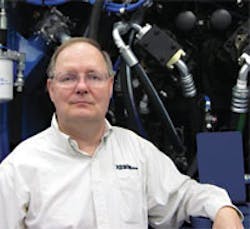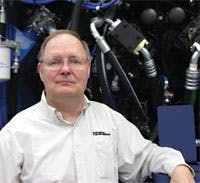Internet has news people jumping the gun
editor
[email protected]
It’s always been important for news outlets to scoop the competition. Whenever a big event occurs, it seems important to break the news first. And if the news is big enough, it might even mean jeopardizing accuracy. “Dewey Defeats Truman” is a classic headline from the November 3, 1948 edition of the Chicago Tribune, in which the newspaper erroneously reported a republican victory in the 1948 US presidential election.
Now, of course, we have the internet, a source of unlimited information — whether it’s true, false, or somewhere in between. News outlets traditionally relied on agencies such as the Associated Press or United Press International for much of their material. But because news can travel so quickly over the internet, news outlets also use the internet as a source. But woe to those who don’t check the validity of the information.
Most local news programs across America now have segments showing YouTube videos, user-contributed photos and videos, and other information that’s been garnered from the internet and cell phones. The problem is, in the race to present this information to viewers, local stations must not check the validity of their sources very well, because it’s not unusual for them to later report that the information was a hoax.
But it’s not always a hoax; sometimes it’s just sloppy reporting. For example, a recent “news” report summarized a Forbes list about “Cities with the Least Happy Workers.” Topping the list was Boulder, Colo., and Cleveland, Ohio, was number six. Turns out, the survey was not conducted by Forbes magazine, but by CareerBliss, of Irvine, Calif., on behalf of Forbes. CareerBliss deems itself, “The Leading Online Career Community.”
I’m sure this type of thing happens frequently, especially in this age of outsourcing, where companies no longer have enough people to disseminate information, so they pay some other company to do it. The problem is, if you haven’t chosen a credible source, you don’t know how reliable your farmed-out information will be.
Patrick Perry, president of the Employers Research Council, Mayfield Village, Ohio, had a hard time believing that Cleveland made the top-ten list, so he did a little digging. ERC is an organization that “assists companies with the attraction, retention, and motivation of employees.”
Perry found that CareerBliss supposedly surveyed 36,000 people from across the country — only about 0.015% of the US adult population. Cities were rated happy or unhappy based on at least 50 unsolicited participants who happened to visit CareerBliss’ website.
But most incredible was the description of Cleveland on forbes.com — their profile matches that of Cleveland, Tenn., not Cleveland, Ohio. Let’s just hope Forbes doesn’t commission a survey of the fluid power industry. It would probably conclude that the most well-known manufacturer of fluid power components is Sea World!


